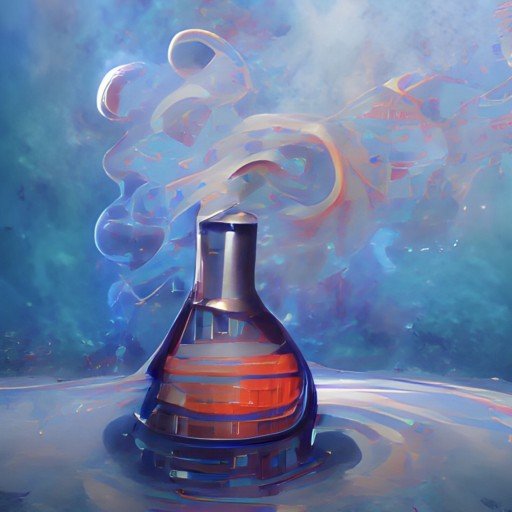Project Catalyst is an experiment in collaboration and innovation for Cardano. This experiment is made possible by the Cardano blockchain. The format of Project Catalyst is a series of funding rounds, wherein challenges are presented, and anyone in the world may propose solutions. The Cardano community votes for the solutions they like. Winning proposals receive funding to deliver their solutions.
In a previous article we learned about Decentralized Autonomous Organization (DAO), which is a way of organizing and sharing work using the blockchain. And last week we mentioned the self-funding Cardano Treasury, which fuels development and maintenance of the network. Project Catalyst is where these two concepts come together. It is a first-of-its-kind initiative which seeks to inspire “the highest level of human collaboration.”
The Experiment
The Project Catalyst experiment started with Fund 1 in September 2020. As of this writing in August 2021, we are in the middle of Fund 6. Each round has had more money at stake, more problems to solve, and more innovative minds trying to solve them. From a high level, the process is simple:
1) Challenges:
Also called Campaigns, the challenges call attention to areas of the network in need of development. Here is an example from Fund 6; this challenge highlights the need for more multilingual resources in order for the network to grow:

2) Proposals:
Anyone can submit a proposal, describing how they would address the challenge. As you can imagine, there is a wide range of ways to address the need for multilingual resources! In the example above, the number “43” at the bottom represents the number of proposals submitted to this challenge. Good proposals include a comprehensive plan, a project roadmap, and a detailed budget.
3) Voting:
Currently, anyone who holds at least 500 ADA in a wallet that supports voting may vote. I voted for the first time in Fund 5. I found that it was both intimidating and stimulating to vote on many ideas that fall outside my range of experience and expertise. On one hand, it was an opportunity to learn new things and expand my range of knowledge and familiarity with Cardano. On the other hand, it wasn’t actually necessary for me to pay attention to the technical proposals that were outside my areas of knowledge and interest. If I was more interested in and knowledgeable about Multilingual Resources, I could just focus my attention and my votes in that area. In this way, the funding and direction of the network is shaped by my interests! Finally, I found that even without a deep understanding of the very technical categories, I was still able to read proposals and identify those that seem to have a clear vision, a well-articulated plan, and measurable metrics of success. With my votes, I encouraged future proposals to raise the bar for formulating and articulating their plans.
4) Funding, Governance, and beyond…
After voting closes, the winning proposals receive funding. The next steps are for these winners to actually build and deliver on their proposals, and for auditors to follow up and ensure that the community’s investments are used well. While these building and governance phases are just getting underway, the next funding round is starting up - each cycle is relatively short.
Project Catalyst is guided by IOG, the company that created Cardano, and it is funded by the Cardano Treasury, which is a self-funding function of the network. A small fraction of every Cardano network fee is directed to the Treasury, so that as long as the Network is running and being used, there will continue to be money available for problem solving and innovation of this kind.
Take a look at some of the numbers behind the Project Catalyst experiment:


Lido Nation’s Project Catalyst Tool
If you’d like to learn more about Project Catalyst proposals, Lido Nation has built a project explorer, on our Cardano Treasury page. We built this tool because we found there was no public-facing repository of all past proposals, with a full set of search and filter tools for understanding the full history of the project. The primary interface for viewing and voting on proposals provided by IOG requires registration to log in. Furthermore it is difficult to view past proposals unless they were funded. We think it’s important that as a community, we have the ability to see all the pieces of the puzzle, in order to be informed citizens and contributors. Take some time to check out past proposals, and see if there is something that interests you!
The future of Project Catalyst
Project Catalyst is like a Crowd-Sourcing project - on steroids! The goal with each round is that more pieces of the puzzle are proposed, decided, and run by the community itself. For example, in early rounds, the “Challenges” were all set by the team at IOHK. Throughout subsequent rounds, the community has been asked to propose and vote on Challenge questions for the next round. In the current round, Fund 6, half of the challenge campaigns came from the community. Eventually, all the challenges will be fully decided and set by the community, along with other aspects of decision making and governance.
At some point, we expect that Project Catalyst as we know it will come to an end. Then, the things we have learned will pave the way for the establishment of a fully functioning DAO. At this future time, the role of IOG will shift; ownership and governance of the network will be in the hands of ADA token holders, like you!
From the Cardano Roadmap: “While we are building Cardano, we are merely custodians. When the network is fully decentralized it will belong to the community, and it will be the community who decides its future through advanced governance features.”
How you can participate
If you hold at least 500 ADA, you can vote, and you should. Deciding on the future of Cardano isn’t just for techies and insiders. Cardano is a tool for all of us, and it needs all of us in order to rise to its full potential. Registration for Fund 6 is open now, through September 2021, and voting for Fund 6 will start on October 7th. If you are reading this at a future date, just jump in! Registration instructions can be found in the links section below.
Once you have participated in a voting round, you’ll have a better idea of the many different kinds of ideas and proposals out there. Maybe you’ll even have some creative ideas of what you could contribute, and will be inspired to make a proposal in the next round…
Lido Nation is in it!
The team at Lido Nation decided to join the fun in Fund 6, and submitted 3 proposals. With more than 800 other proposals in the race for maybe 100 winning spots, the competition will be stiff! But we have enjoyed the process of crafting our ideas into proposals and throwing them in the ring.
Once you have registered to vote, check out our proposals on Ideascale, drop us some comments and “kudos”, and get ready to vote us up in October!
Treasury and Catalyst Directory: This is the Lido Nation tool mentioned earlier in this article. Our proposal would allow us to build it into an even better resource for the whole Cardano community. Spanish News, Insight, and Onboarding: Spanish is one of the top native languages of the world. This funding would allow us to make our library of beginner-friendly resources available in Spanish. Swahili News, Insight and Onboarding: The Cardano community has an interest in solving problems in Africa. So we have teamed up with a group of young techies in Kenya to translate our content into Swahili.
This month, we will receive feedback from community members and proposal advisors. After that, we look forward to the results of voting in October. If any of our proposals is funded, it will be very encouraging, and will influence what we focus on in the near future. Regardless of the outcome, we remain focused on providing accessible information and resources for Cardano newcomers.



ce vraiment tres bien